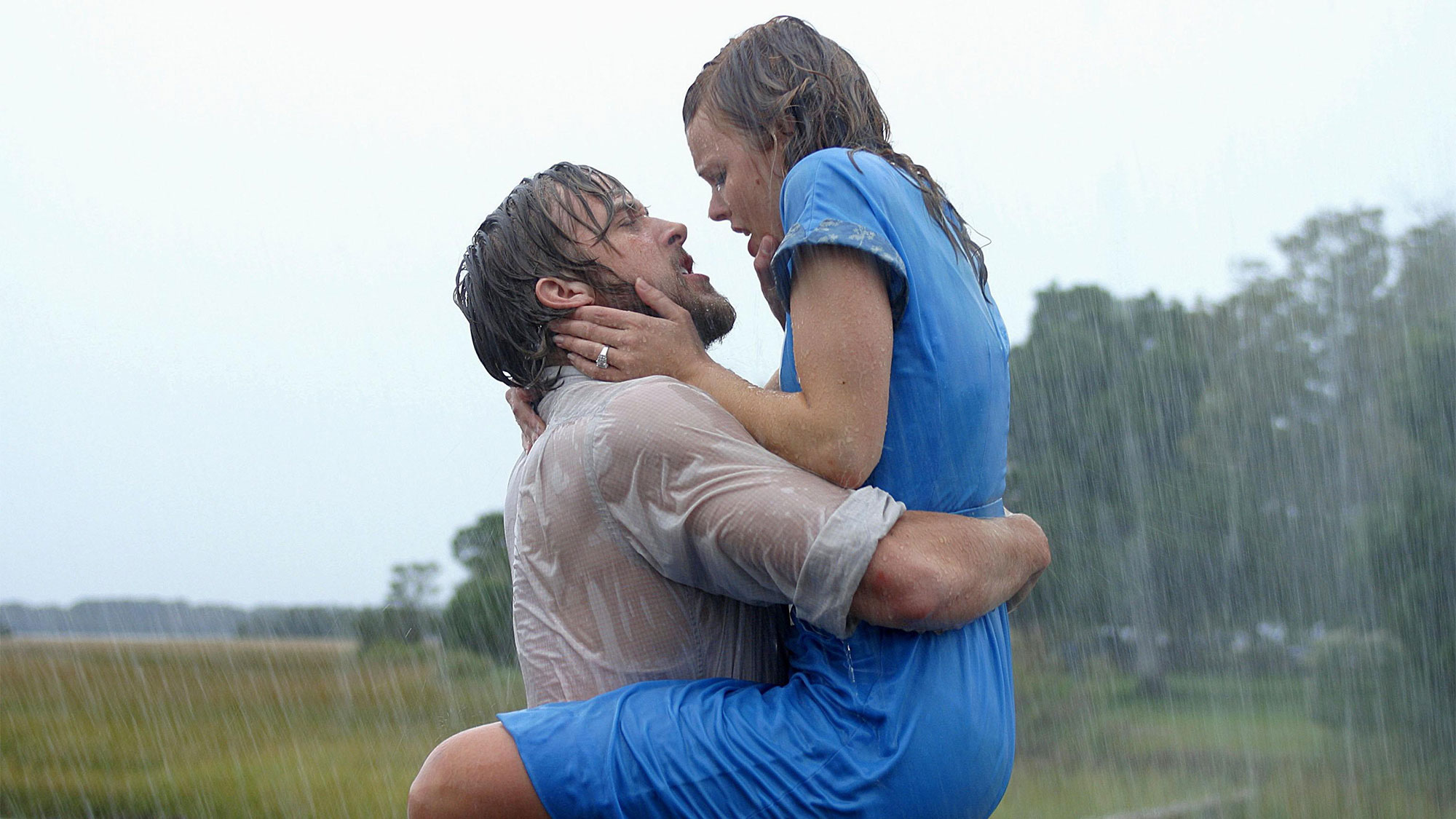
You don’t need a large sinking ship to have an epic love story. It’s been over two decades since "The Notebook "was released, and the 2004 Nick Cassavetes film remains not only the best Nicholas Sparks adaptation but also one of the most beloved romances, period (and not to mention, one of Ryan Gosling's best movies).
"The Notebook's" timelessness goes beyond the flawless chemistry of Ryan Gosling and Rachel McAdams, who star as young Noah and Allie. As teens, they fall madly for each other in the summer of 1940, but are kept apart by her snobby, letter-hiding mother (Joan Allen). They are able to reconnect seven years later — right after Allie agrees to marry another man (James Marsden).
There’s also the achingly beautiful devotion of elderly Noah (James Garner), who recounts the saga to Alzheimer’s-stricken Allie (Gena Rowlands), and what the depth of their love accomplishes in the end.
If you’re in the mood for another heart-swelling romance that transports you to another era and may leave you reaching for a tissue, here are seven movies like "The Notebook" to watch next.
'Brooklyn' (2015)
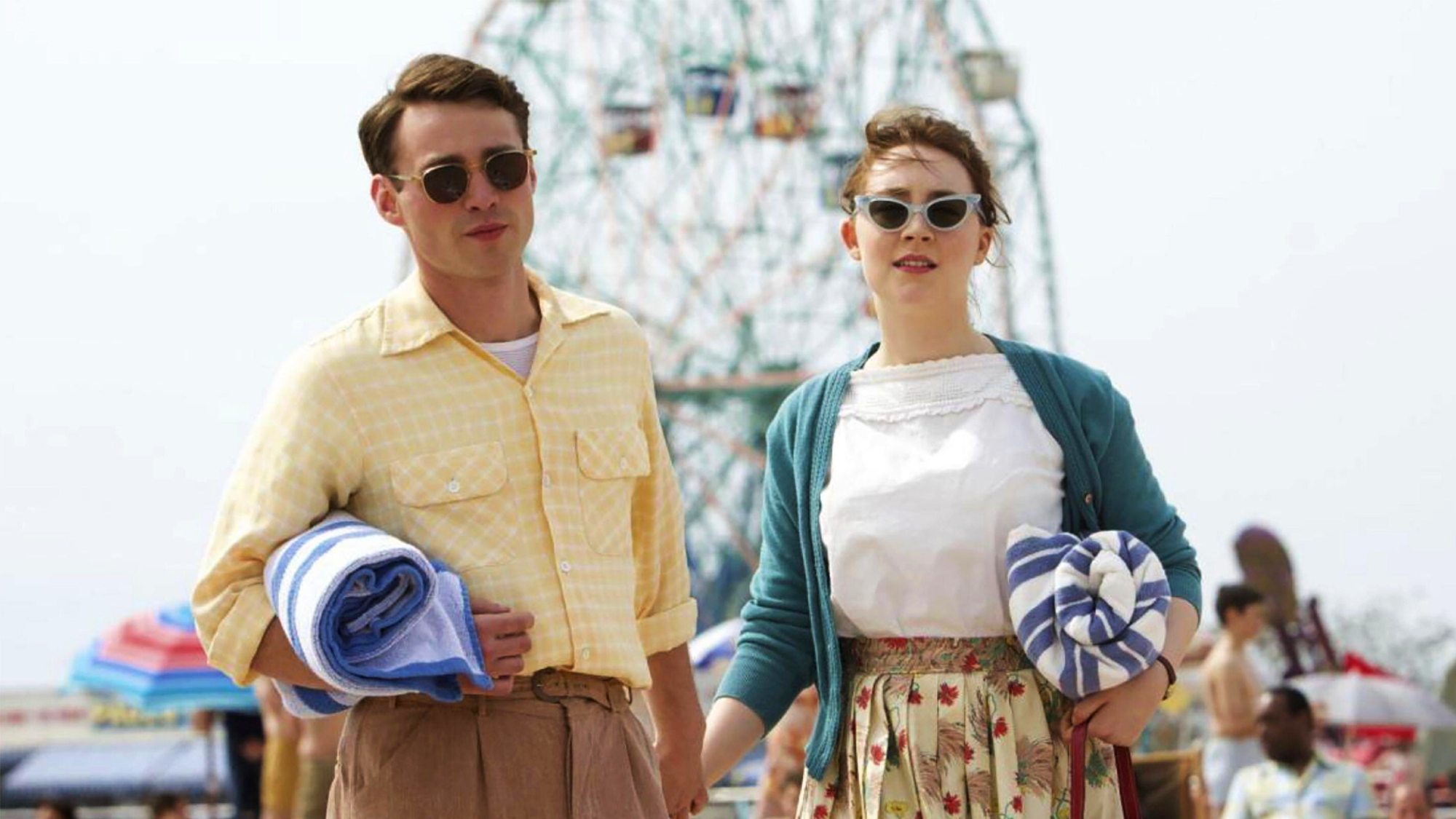
Based on Colm Tóibín’s best-seller, this charmer set in early 1950s New York earned three Oscar nominations: best picture, adapted screenplay, and lead actress. The always compelling Saoirse Ronan is Ellis, an Irish immigrant living in an all-girls boarding house and working at a department store, who begins to feel at home in Brooklyn after she meets Italian-American plumber Tony (Emory Cohen). Then her sister (Fiona Glascott) dies suddenly, and she returns to Ireland for what should be a brief visit. Only her small town finally gives her reasons to stay: an accounting job, for which she’s been studying, and a suitor named Jim (Domhnall Gleeson).
As with "The Notebook", both men in this love triangle are decent and worthy. The question is what life Ellis wants for herself. The ending will make you swoon, but a full-circle moment before it — Ellis giving advice to another young woman brave enough to start anew — might just move you more.
'Sylvie’s Love' (2020)
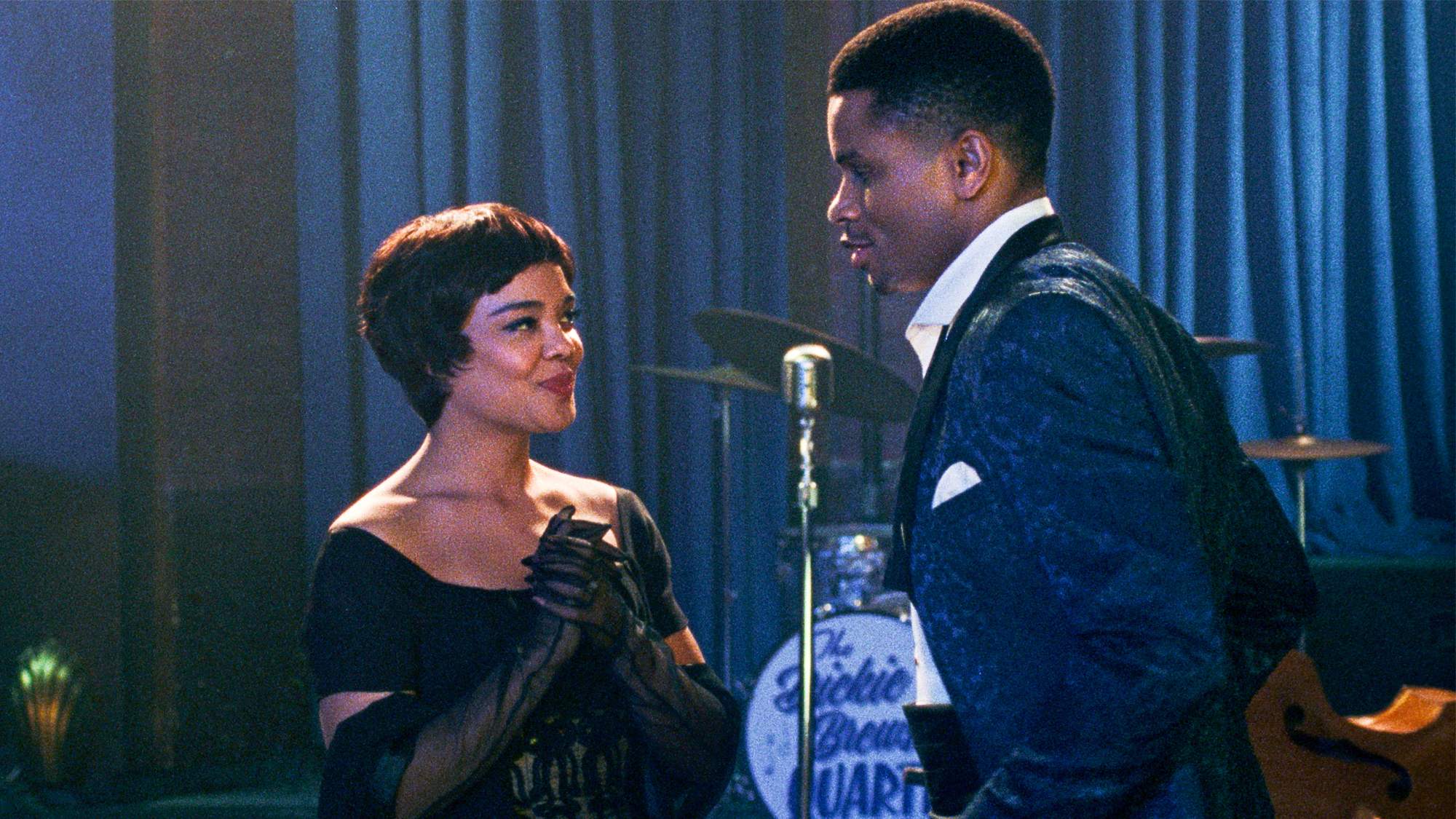
This original gem from writer/director Eugene Ashe immerses you in late 1950s New York, where aspiring TV producer Sylvie (Tessa Thompson) meets gifted jazz saxophonist Robert (Nnamdi Asomugha) in the Harlem record store her father (Lance Reddick) owns. She’s engaged to someone else but can only fight true love for so long. Cue the romantic "Notebook"-esque dancing in the middle of the street and montage of makeouts, bike rides and sneaking around at night.
When Robert’s quartet gets a gig in Paris, Sylvie chooses not to follow him — and to hide something that could make him stay. Five years later, in 1962, they randomly meet again after she’s married, and more life-changing decisions need to be made.
As you would expect, the film’s soundtrack is phenomenal, from the performances onscreen to the perfect background needle drops from Nancy Wilson, Jackie Wilson, and Sam Cooke. Equally marvelous is the way Ashe, Thompson and Asomugha make you feel like Sylvie and Robert are the only two people in the world, even when the broad supporting cast includes Eva Longoria, Wendi McLendon-Covey and Jemima Kirke.
Watch on Prime Video
'The Last Letter From Your Lover' (2021)
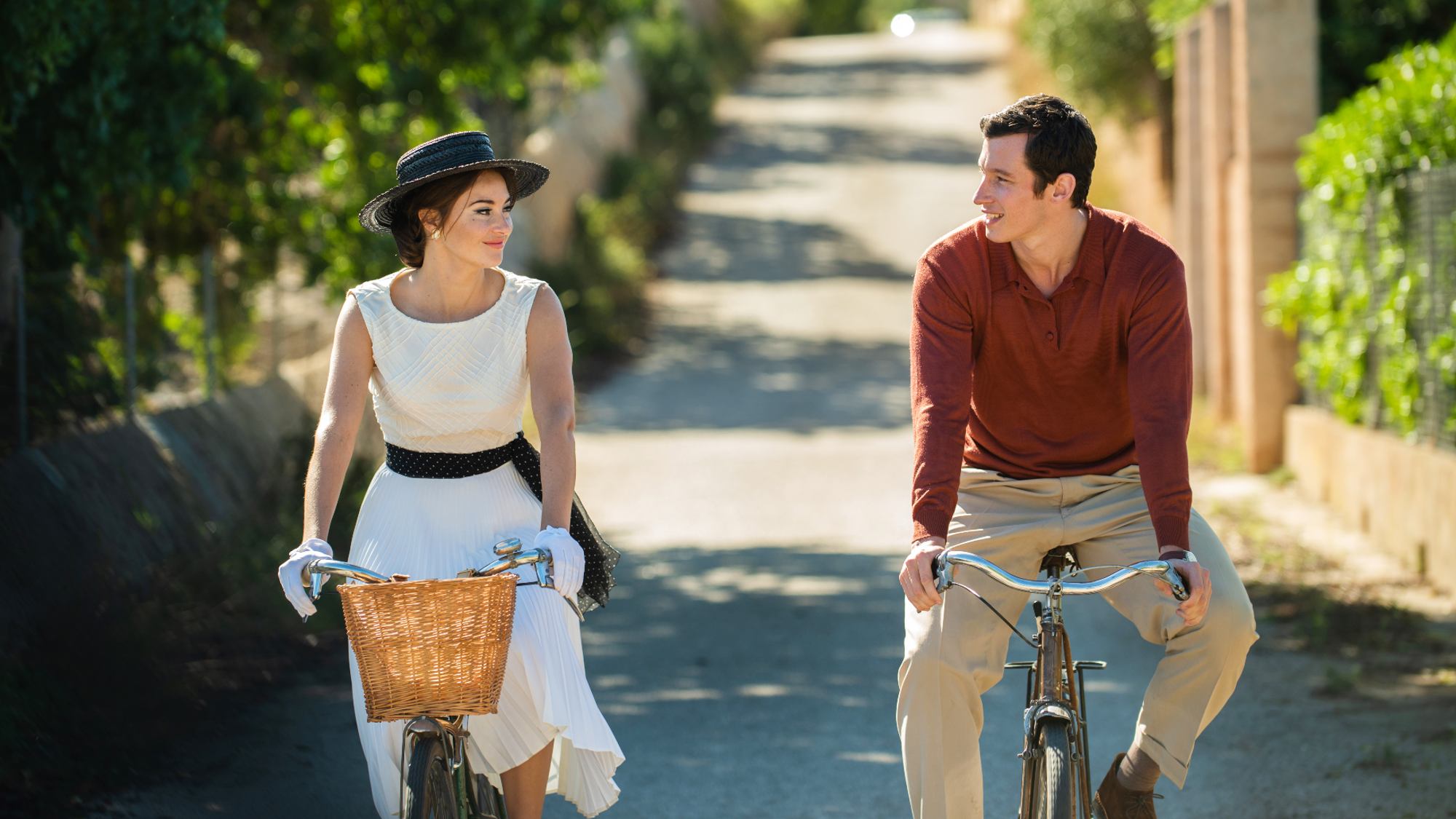
Adapted from Jojo Moyes’ lauded novel, this dual-era film is full of heartbreaking twists and stunning ‘60s style and design. In the present day, features writer Ellie (Felicity Jones) stumbles upon a misfiled letter in The London Chronicle archives and becomes obsessed with uncovering the identities and fates of its forbidden lovers — and with the possibility of reuniting them some 50 years later.
Meanwhile, in 1965, Jennifer (Shailene Woodley) tries to unravel a mystery herself after finding a hidden letter addressed to her. She’s recovering from a car accident and has amnesia, you see. She has no idea that at the time of the crash, she’d just chosen to leave her husband (Joe Alwyn) and was rushing to meet her lover (Callum Turner) at the train station.
The moral is also twofold: Be happy we live in a time of cellphones and Google, and if you aren’t willing to put your heart through a second (third! or fourth!) chance at love, you will miss your long-awaited happy ending.
Watch on Netflix
'The Guernsey Literary and Potato Peel Pie Society' (2018)
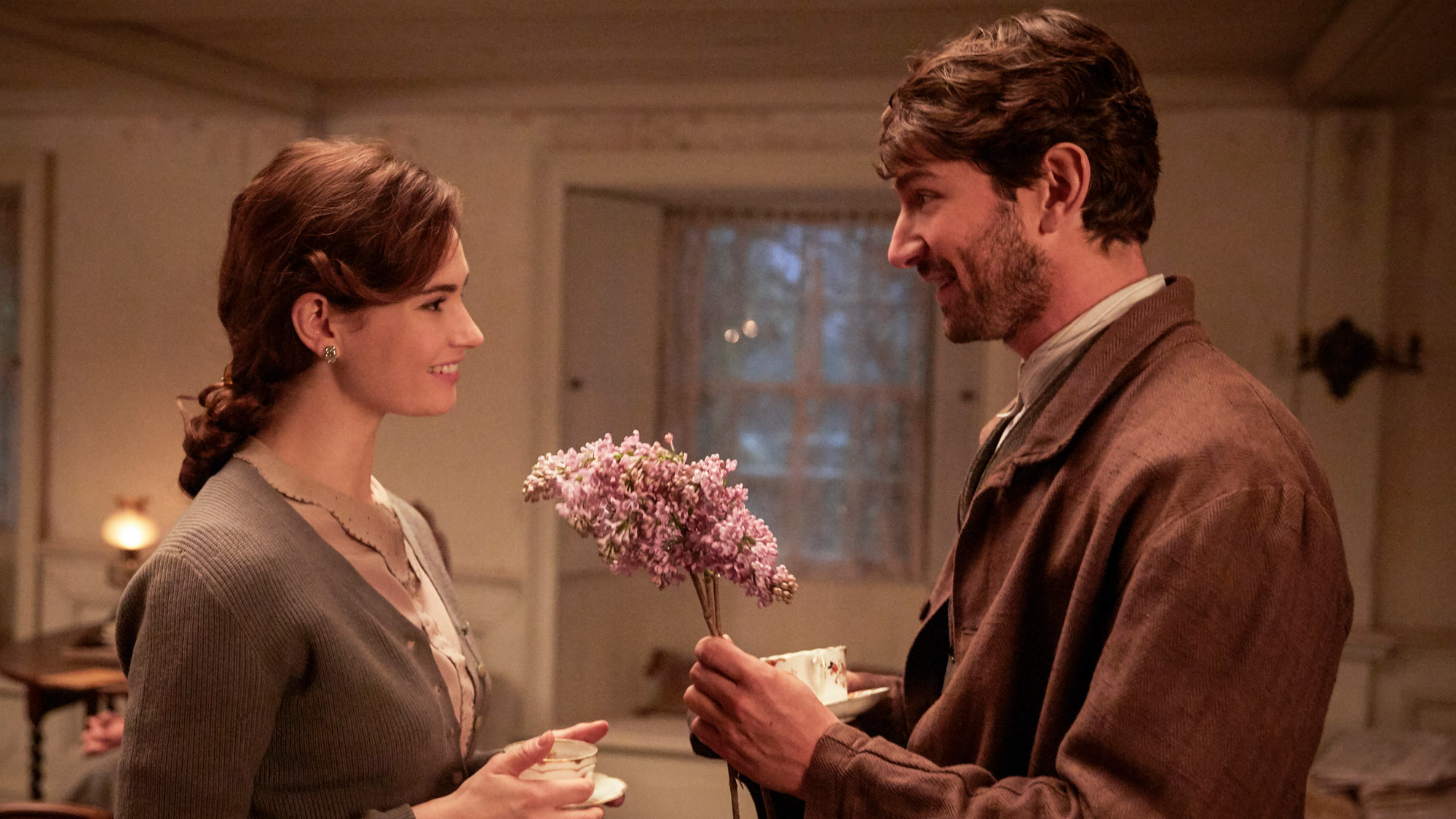
Letters also play a key role in this poignant historical drama, directed by "Four Weddings" and a Funeral’s Mike Newell and adapted from the best-seller by Mary Ann Shaffer and Annie Barrows.
In 1946 London, writer Juliet (Lily James) receives a letter from Dawsey (Michiel Huisman), a farmer on the English Channel isle of Guernsey, who shares her love of essayist Charles Lamb and quickly captivates her with the surprisingly amusing tale of how the titular book club was formed during the Germans’ devastating occupation of the island.
Juliet travels to Guernsey to attend one of their meetings, hoping to write about the group, but finds there’s a piece of their story too painful for them to tell — what happened to their fearless founder, Elizabeth (Downton Abbey’s Jessica Brown Findlay). As Juliet digs into that mystery, she also starts to wonder if Dawsey might understand her and the loss she experienced during the war more than her fiancé (Glen Powell). Good old-fashioned sexual tension ensues.
To answer the obvious question, the society is fictional but the history Juliet learns on Guernsey is very real. Also worth noting: Anyone who watched the film pre-pandemic might find the connection that Dawsey and the others craved, and found, even more stirring now.
Watch on Netflix
'The Bridges of Madison County' (1995)
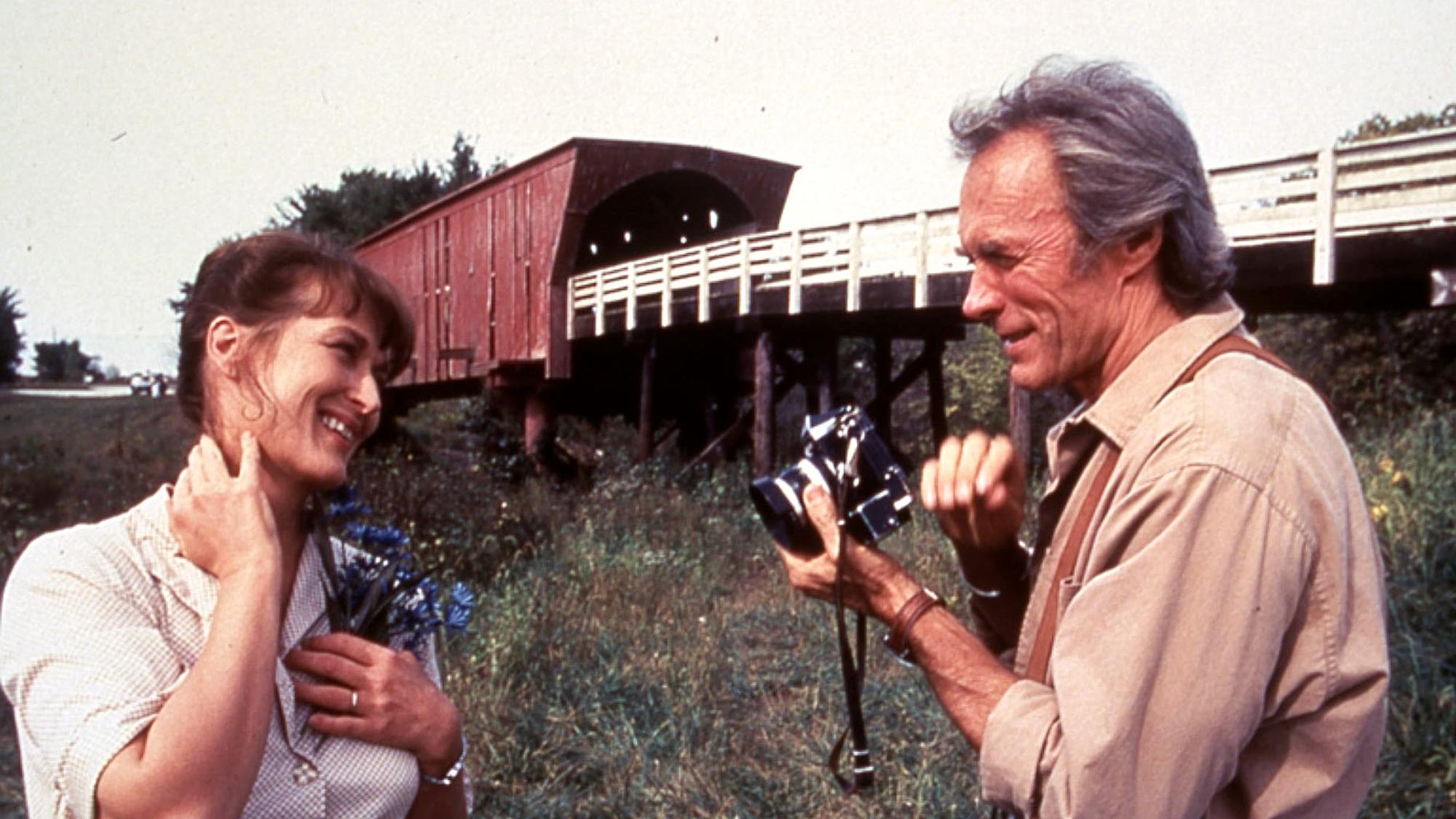
Unlike the other movies on this list, the adaptation of Robert James Waller’s wildly popular bestseller is about lovers who meet midlife, which means Italian war bride turned Iowa housewife Francesca (Meryl Streep, earning one of her 21 Oscar nominations) already knows the regret of surrendered dreams yet still has much to lose.
The story is told via flashback after she dies and leaves her adult children notebooks detailing the passionate four-day affair she had with photojournalist Robert Kincaid (Clint Eastwood, who also directs) in 1965. Francesca wants them to truly know her — and to understand why she’s requested to be cremated and have her ashes scattered at Roseman Bridge instead of being buried next to their father.
What’s striking is how the kitchen that represents Francesca’s confined, predictable life becomes romantic and new with Robert in it: her hand resting on his shoulder as she answers the phone, a slow dance to the smooth voice of Johnny Hartman. Even though you know Francesca’s decision to stay with her family from the start, the rainy five-minute scene where she makes the choice is no less heart-wrenching. The film’s ending is a moving reminder that you can hold on to the love of a lifetime even when you don’t get to spend a lifetime with that person.
'Love Story' (1970)
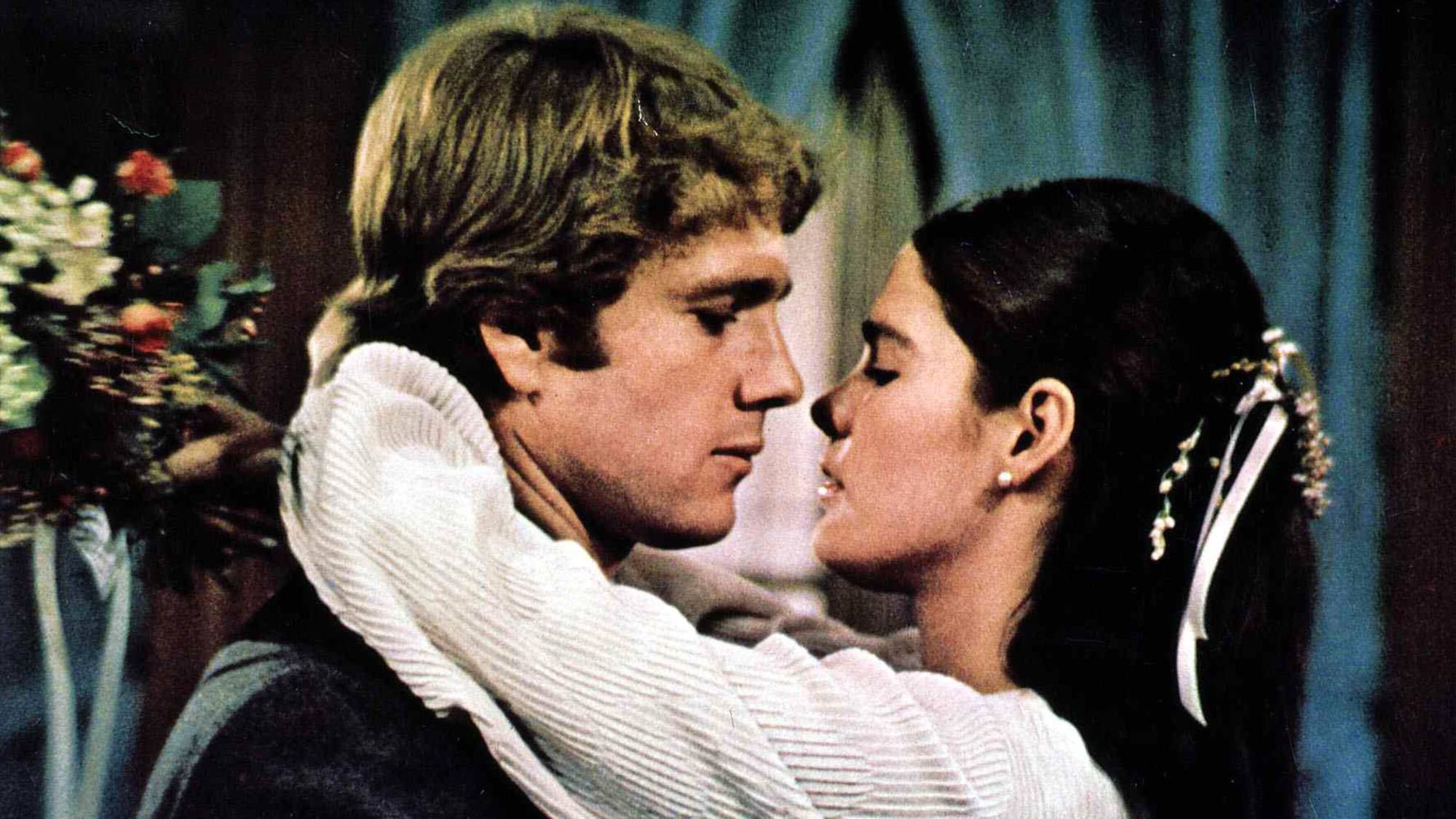
This legendary tearjerker, nominated for seven Oscars, also telegraphs its ending from the beginning: “What can you say about a 25-year-old girl who died?” asks Oliver (Ryan O’Neal) in voiceover. “That she was beautiful and brilliant. That she loved Mozart and Bach, the Beatles … and me.”
Oliver and Jenny (Ali MacGraw) are at neighboring colleges in Cambridge when they meet and instantly fall into a bawdy, bickering banter that "The Notebook’s" Allie and Noah would appreciate. They too share a pivotal kiss in the rain and a playful chemistry (though instead of frolicking on a South Carolina beach, it’s making snow angels in Massachusetts). They’re also of different backgrounds, only this time it’s his wealthy father who doesn’t approve of her.
They make sacrifices to be together, and when Jenny falls ill, Oliver worries that hers were too great. Watching the film, which screenwriter Erich Segal reverse-adapted into a bestseller, you might question it too (along with Jenny’s doctor telling Oliver about her diagnosis before her and the meaning of the famous line, “Love means never having to say you’re sorry”). But trust that Jenny is a woman who spends her time the way she wants to, which makes the simple outing before she’s hospitalized truly touching.
Watch on Paramount Plus
'Somewhere in Time' (1980)
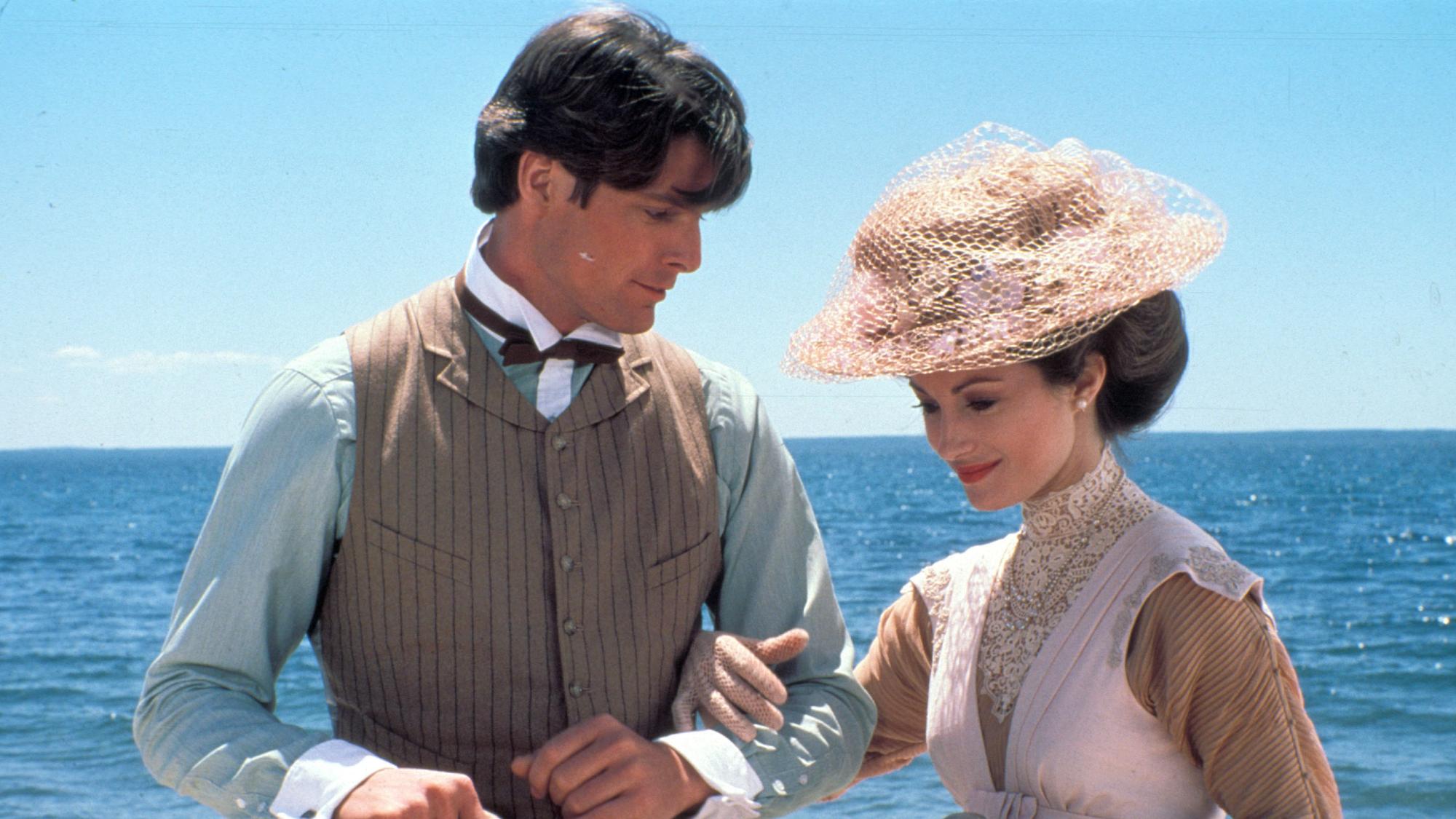
You’re gonna need a bigger box of tissues for this fantastical story, adapted from Richard Matheson’s novel Bid Time Return. In 1972, college playwright Richard Collier (Christopher Reeve) is celebrating opening night when a mysterious elderly woman hands him a pocket watch and says only, “Come back to me.”
It’s not until eight years later, when Richard is staying at the lakeside Grand Hotel and becomes infatuated with a photograph of late actress Elise McKenna (a luminous Jane Seymour) hanging in its Hall of History that he pieces together that she was the woman who approached him — and that he is meant to join her at the hotel in 1912, time-traveling via self-hypnosis that will end if he sees any modern object.
Elise hasn’t yet lived their encounter, so Richard has to woo her with lots of sweetly smoldering looks and stolen conversations while avoiding her controlling manager (Christopher Plummer). Seymour is particularly spellbinding when Elise goes off-script performing a play at the hotel. And while John Barry’s sweeping score is enough to make you burst into tears at any given time, the film’s shocking conclusion will haunt you.
Watch on Tubi







